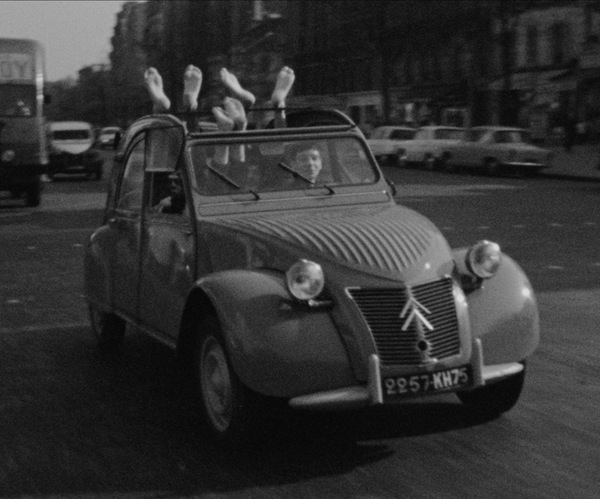Film Review: Not Enough Joy in Director Chris Marker’s “Le Joli Mai”
“Le Joli Mai” is serious and sober, a bit of a downer, climaxing in a lengthy interview with a dullard union official about why he supports the French Communist Party.
Le Joli Mai. Directed by Chris Marker and Pierre Lhomme. At the Kendall Square Cinema, Cambridge, MA, through December 12.
By Gerald Peary
In their pioneering cinéma vérité documentary, Chronicle of a Summer (1960), filmmaker Jean Rouch and sociologist Edgar Morin stopped everyday people in the streets of Paris and asked them, “Are you happy?” I saw this film years ago, but my memory of it is of a sunny Q&A, jovial questioners and easygoing answerers content with their lives in the most wonderful of cities. Le Joli Mai (1962), made two years later in Paris by filmmakers Chris Marker and Pierre Lhomme, asked the same exact question. But the leftist documentarians seemed intent on uncovering a Paris of misery and exploitation and have-nots. A rejoinder to the casual optimism of Chronicle of a Summer.
A “lovely month of May” indeed!
Among the scenes: a shabby gypsy shantytown on the far edges of the city. An interview with a charismatic African student who rails against the colonialist French, and admits that, though long living in Paris, he has not one white friend. A talk with a street-smart, articulate Algerian teenager, who has been beaten and jailed by the French police but still hopes to be a teacher. Shots of Algerian workers performing rough, unsafe jobs in the streets of Paris. The point of the filmmakers was, of course, that the Algerian War had ended in 1962 in name only, that France’s celebrated peace had not brought solace to downtrodden Algerians. If Le Joli Mai has an overt enemy, it’s Charles de Gaulle, French President, who marches through several militarist scenes.
Perhaps Le Joli Mai’s best sequence: a chat with a very funny, incredibly unhappy, suit salesman, whose life consists, he says, of being barked at by his boss all day, nagged by his wife at home because he doesn’t make enough money. The interviewer, Marker, suggests he relax by seeing Last Year at Marienbad. The man scoffs at the idea of an artsy movie night of Alain Resnais: “Why pay money to figure it out?”
The above is a rare moment of levity in Le Joli Mai. Another, brief, is of Parisians trying out the American line dance, the Madison. Another, also brief, is an interview with an eccentric guy attempting to set a French record for the number of hours straight doing The Twist. He’s talked to, as his body contorts, Chubby Checker style. Finally, a conversation of three Parisian intellectuals about reducing the work week to 35 hours is punctured, at various times, by close-ups of preening cats. Those familiar with the cinema of Chris Marker know he loved pussycats. They are everywhere in his essayist movies.
That’s it for fun. Otherwise, Le Joli Mai is serious and sober, a bit of a downer, climaxing in a lengthy interview with a dullard union official about why he supports the French Communist Party. The film is not helped by Simone Signoret’s English-language voiceover of awkward, overwritten philosophic insights. Dare I say it about a film by the much-admired Marker? It’s only mildly interesting. Quite a disappointment considering that Le Joli Mai has been out of circulation since its original release half a century ago. And, finally, it’s too damn long. In 1966, New York Times critic Vincent Canby complained about the unnecessary length of 2 hours, 6 minutes. The 2013 version, some kind of Director’s Cut, adds on another 20 fat minutes.
Gerald Peary is a professor at Suffolk University, Boston, curator of the Boston University Cinematheque, and the general editor of the “Conversations with Filmmakers” series from the University Press of Mississippi. A critic for the late Boston Phoenix, he is the author of 9 books on cinema, writer-director of the documentary For the Love of Movies: the Story of American Film Criticism, and a featured actor in the 2013 independent narrative Computer Chess.

